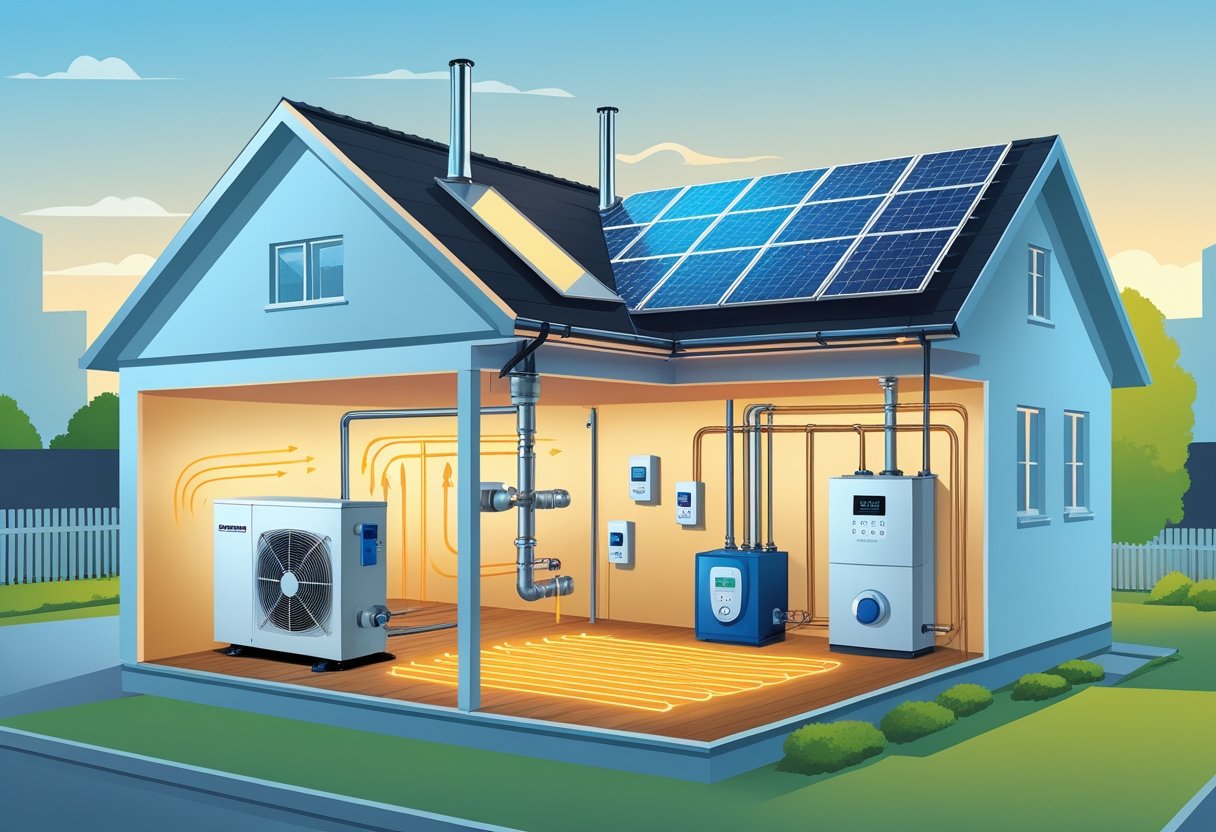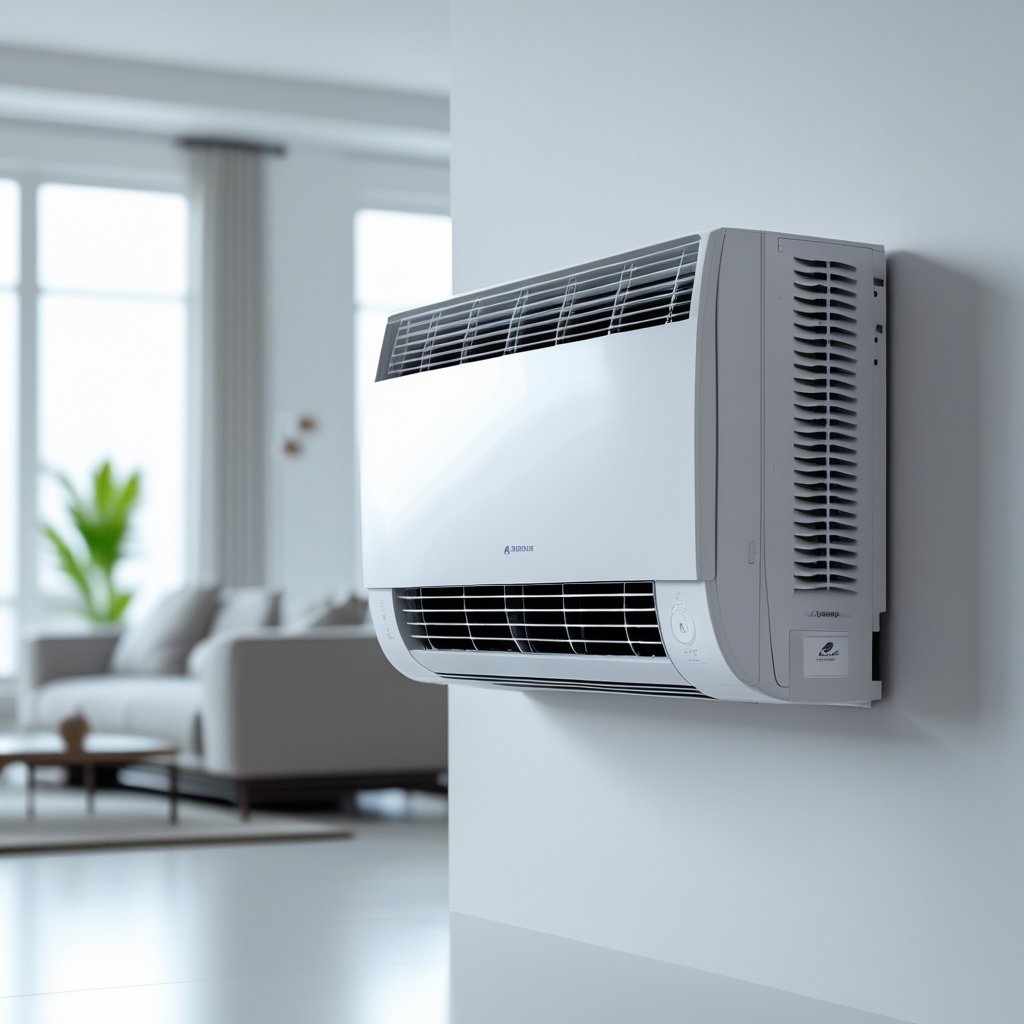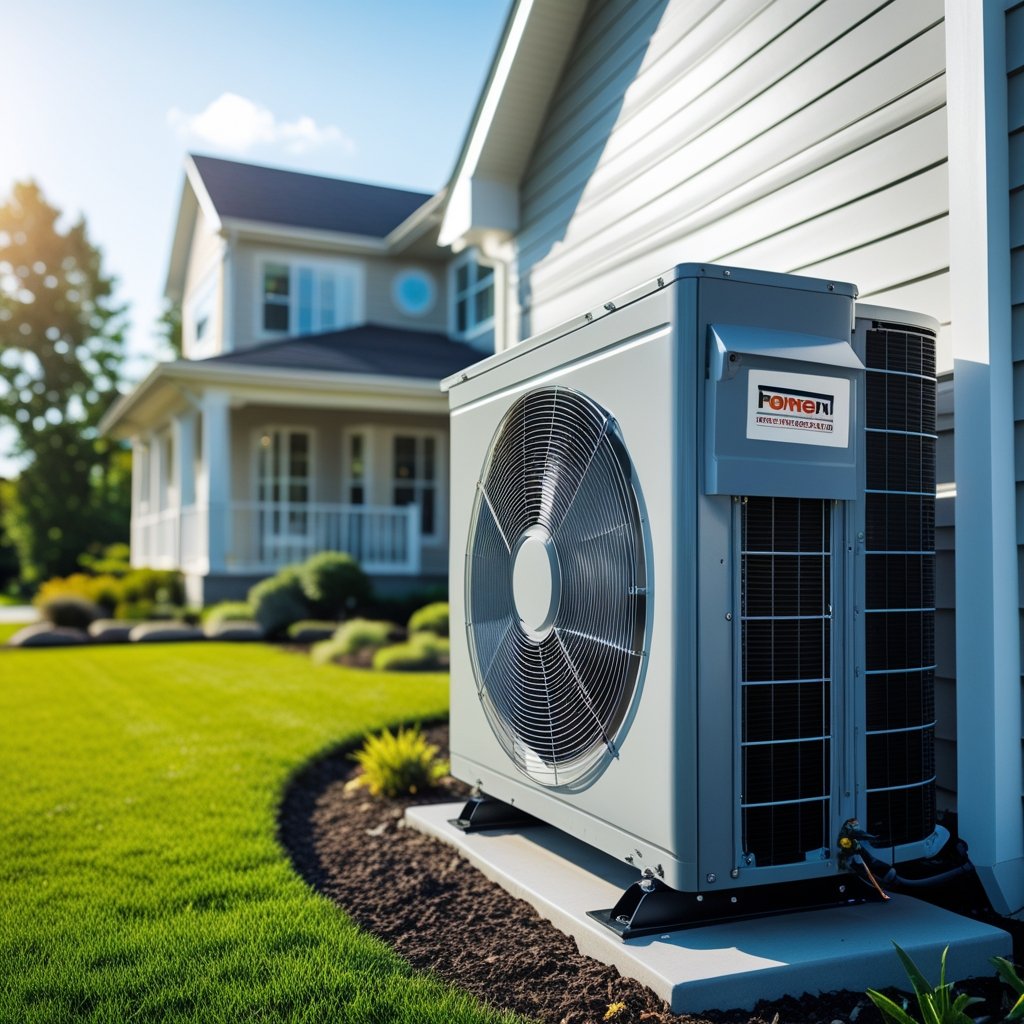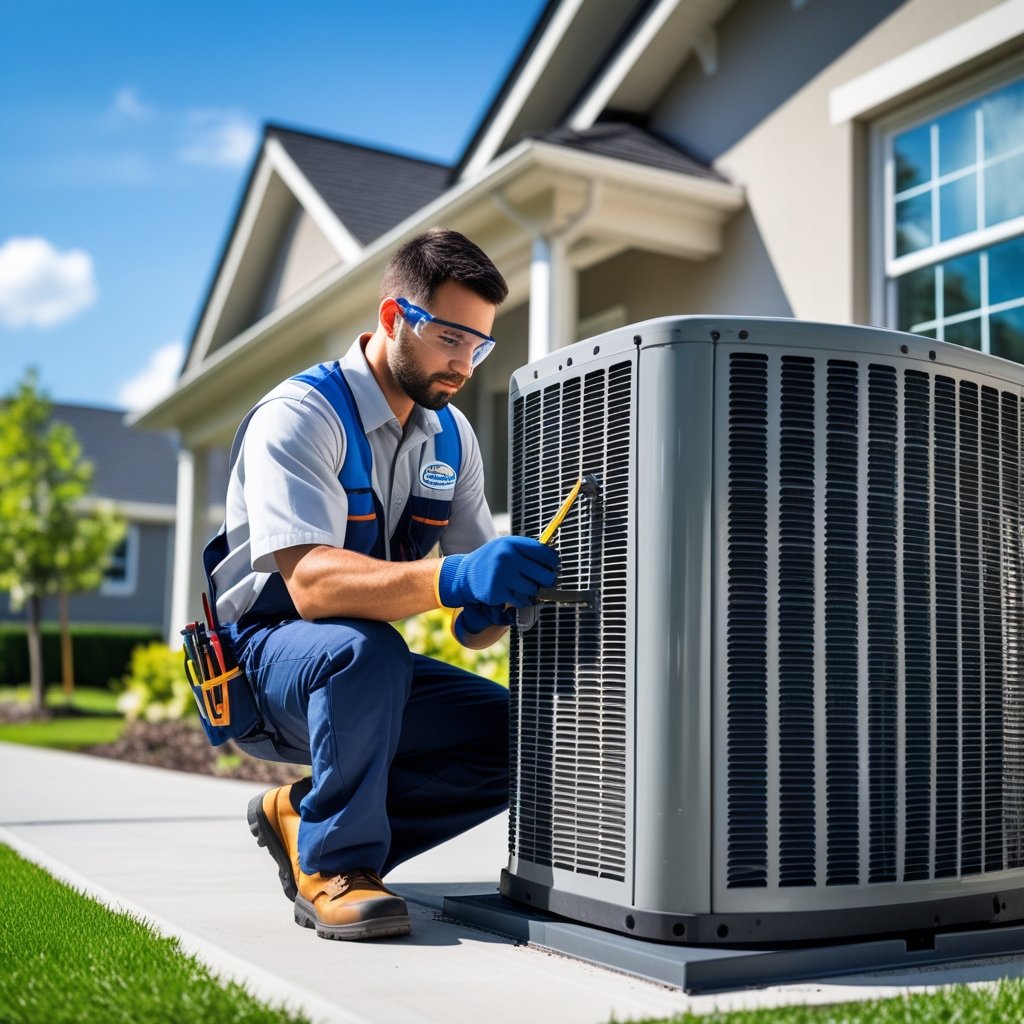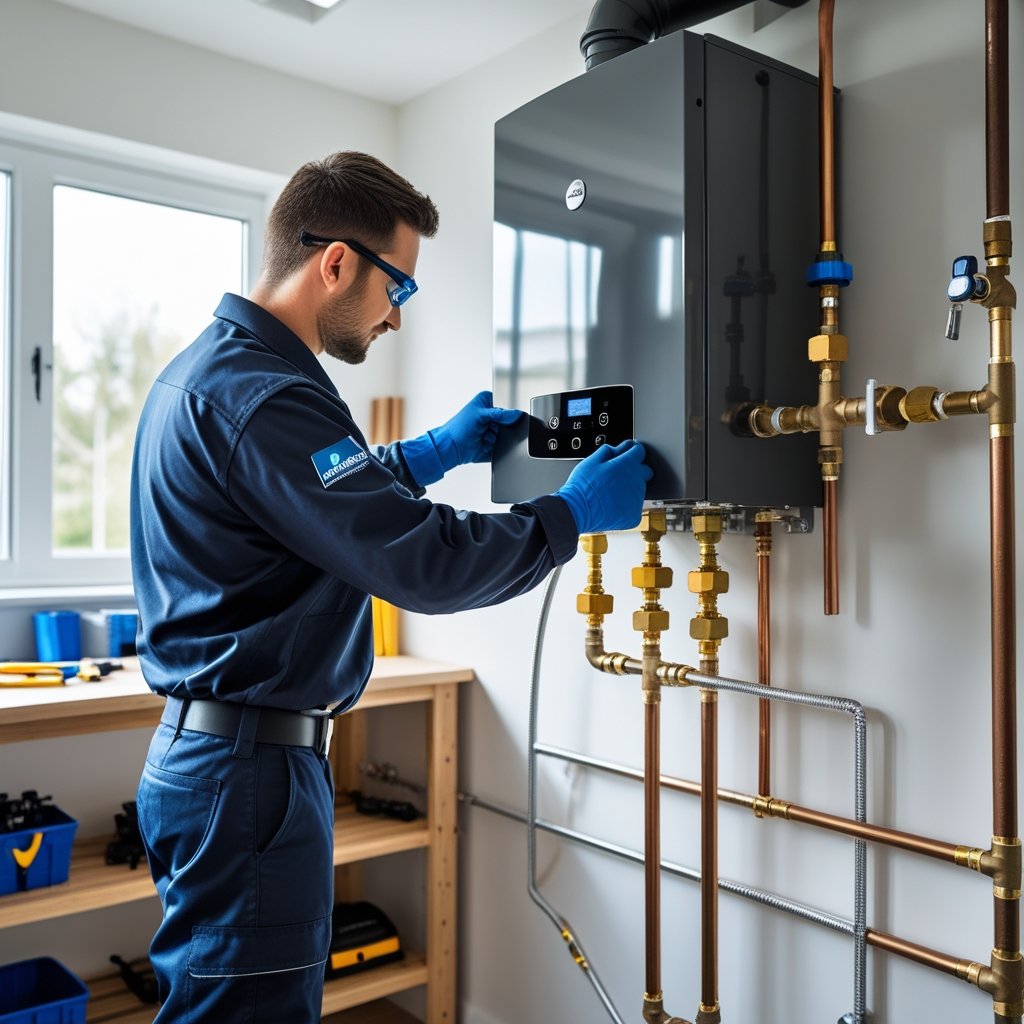As winter approaches, many homeowners start considering their heating options. Energy-efficient heating solutions not only reduce your utility bills but also contribute positively to the environment. Understanding which systems provide maximum efficiency can help you make informed decisions that benefit your home and wallet.
Modern technologies like heat pumps and geothermal systems are among the top choices for homeowners seeking eco-friendly solutions. Companies like Leo Kob Co. can guide you through selecting and installing the best system suited to your needs. Whether you prefer a combination of electric heat pumps with a gas furnace or other alternatives, knowing your options is essential.
With so many choices available, it's important to consider factors such as installation costs, maintenance, and efficiency ratings. By partnering with Leo Kob Co., you gain access to expertise that ensures your home stays warm while maximizing energy savings. Explore the possibilities to enhance your comfort this heating season.
What Makes a Heating System Energy Efficient?
Energy efficient heating systems provide substantial cost savings and reduce environmental impact. Key factors include efficiency ratings, insulation quality, and the type of fuel used. Understanding these elements can help you make informed decisions about your heating options.
Heating System Efficiency Ratings and Standards
Efficiency ratings indicate how well a heating system converts energy into heat. Common standards include the Seasonal Energy Efficiency Ratio (SEER) and Heating Seasonal Performance Factor (HSPF). A higher SEER or HSPF rating means better efficiency and less energy waste.
For example, a system with a SEER rating of 16 is much more efficient than one rated at 10. Look for ENERGY STAR certification, which guarantees adherence to strict efficiency standards. This is particularly important if you want to lower your carbon footprint while maintaining comfort in your home.
How Proper Insulation Affects Performance
Insulation plays a crucial role in a heating system's efficiency. Proper insulation helps retain heat, reducing the workload on your heating unit. This is vital during colder months when the system has to work harder to maintain a comfortable temperature.
Consider the insulation levels of your walls, attic, and floors. Upgrading insulation can reduce energy usage significantly. If your home is located in South Central Pennsylvania, ensuring proper insulation can enhance the performance of your heating system and lower your utility bills.
Understanding Fuel Sources and Their Impact
Different fuel sources have varying impacts on energy efficiency. Common options include electricity, natural gas, and oil. Electric heat pumps, for example, are often more efficient than traditional electric heating systems.
Natural gas systems tend to be more cost-effective and environmentally friendly compared to oil. Additionally, understanding the carbon footprint of each fuel source can help you select a system that aligns with your values. When choosing a heating source, consult with professionals like Leo Kob Co. to find solutions tailored to your needs.
Investing time to understand these factors will pay off by enhancing your system's efficiency, saving you money, and contributing to a more sustainable future.
Types of Energy Efficient Heating Options
Energy-efficient heating options can significantly reduce your utility bills while providing effective warmth for your home. Among these options are heat pumps, high-efficiency furnaces, and efficient boilers, each designed to enhance comfort and lower energy consumption.
Heat Pumps and Their Varieties
Heat pumps are versatile systems that can provide both heating and cooling. The air-source heat pump extracts heat from the outside air, functioning effectively even in cold weather. These systems are particularly energy-efficient, often producing more energy than they consume. The geothermal heat pump, on the other hand, uses the stable temperature of the ground to regulate your home’s climate. This option is highly efficient and eco-friendly, making it a great choice for those aiming to reduce their carbon footprint.
Leo Kob Co. can help you assess whether an air-source or geothermal heat pump suits your needs. Both options can lead to significant long-term savings and often qualify for rebates.
High-Efficiency Furnaces
When considering high-efficiency furnaces, look for gas or electric models with an annual fuel utilization efficiency (AFUE) rating of 90% or higher. A gas furnace typically provides quick heating and has the added advantage of lower operating costs. Electric furnaces can be a good choice in areas with lower electricity rates or as a backup heating source.
These furnaces utilize advanced technology to ensure optimal performance and energy use while reducing emissions. Upgrading to a high-efficiency model can lead to substantial energy savings, especially in colder climates.
Efficient Boilers
Boilers provide an effective heating solution, often utilizing water or steam to heat your home. Condensing boilers are particularly efficient, capturing waste heat from exhaust gases and using it to increase overall efficiency. This feature allows them to achieve AFUE ratings over 90%.
While traditional gas boilers remain common, consider electric or oil options, depending on your local fuel prices and availability. Efficient boilers can enhance your home’s comfort and represent a solid long-term investment that pays off through reduced energy bills.
By choosing the right heating system, you can ensure a cozy home while minimizing your energy usage. Leo Kob Co. offers a range of heating installation and maintenance services tailored to your needs.
Alternative and Supplemental Heating Methods
Exploring various heating options can improve energy efficiency and comfort in your home. These methods offer flexibility and can work alongside traditional heating systems to reduce energy costs and enhance performance.
Radiant Heating Systems
Radiant heating systems provide warmth directly to floors or walls through electric coils or water pipes. This method eliminates air drafts and improves heating efficiency by delivering heat at a lower temperature.
Types of Radiant Heating:
- In-Floor Radiant Heating: Installed beneath flooring, providing consistent heat from the ground up. It's particularly effective in bathrooms and kitchens.
- Wall and Ceiling Systems: Less common but can be beneficial in specific layouts.
By choosing radiant heat, you can enjoy a cozy environment while minimizing dust circulation. Many homeowners opt for radiant solutions to complement their primary heating methods.
Active Solar Heating
Active solar heating utilizes solar panels to capture sunlight and convert it into usable heat. This environmentally friendly option is gaining popularity due to rising energy costs and increasing environmental awareness.
Solar collectors heat air or liquid that is then distributed throughout the home, often working in conjunction with another heating system to enhance efficiency. This supplemental approach can significantly reduce your reliance on fossil fuels.
To maximize solar gains, proper installation and placement of solar panels is essential. Investing in this system can lessen energy bills while contributing to a greener planet.
Hybrid Heating and Zoned Systems
Hybrid heating systems combine traditional fossil fuel systems with renewable energy sources like heat pumps. This versatile approach allows you to adjust heating based on seasonal requirements and can lead to substantial savings.
Zoned Heating: This strategy involves dividing your home into different areas, each with its own temperature control. This maximizes comfort and minimizes energy use by allowing you to heat specific parts of your home as needed.
By employing a hybrid heat system in conjunction with zoned heating, you can optimize your home’s efficiency and maintain comfort. For tailored solutions, consider consulting professionals like Leo Kob Co. to assess your needs and implement effective systems.
Comparing Installation and Operating Costs
Understanding installation and operating costs is crucial when evaluating energy-efficient heating options. These factors can significantly influence your budget and long-term savings.
Installation Costs and Long-Term Savings
Installation costs can vary widely based on the heating system you choose. For example, a traditional furnace might range from $3,000 to $6,000, whereas geothermal heat pumps can cost between $18,000 and $45,000.
While the upfront cost is essential, consider the long-term savings on your utility bills. Many energy-efficient systems, such as heat pumps, can save you up to 30% on yearly heating costs. Investing in a more efficient system could lead to thousands saved over its lifetime. Leo Kob Co. can assist you in finding the best options tailored to your square footage and heating requirements.
Estimating Energy Bills and Utility Savings
Estimating your energy bills can help you understand your potential savings. Various tools, like the Residential Heating System Cost Calculator from Efficiency Maine, allow you to input your home’s specifications and calculate expected heating costs.
Energy-efficient systems typically have lower operating costs due to their higher efficiency ratings. For instance, ductless mini-split heat pumps, though higher in initial cost, can significantly decrease your heating bills. Assessing your home’s unique characteristics will help you select the best heating system, minimizing your heating bills over time.
Key Considerations for Choosing the Best System
Selecting the right heating system for your home involves several important factors. Focusing on maintenance needs, ductwork compatibility, and environmental effects will help ensure you make an informed choice that meets your requirements.
Maintenance and Longevity Requirements
When choosing an HVAC system, consider the long-term maintenance needs. Systems like geothermal heat pumps usually require less frequent service compared to traditional furnaces. Regular maintenance, including filter changes and annual inspections, can extend the lifespan of your heating system.
You should also evaluate any warranty options available. Some manufacturers offer extended warranties that can provide peace of mind. Investing in a reliable system can save money in the long run by reducing the frequency and cost of repairs.
Leo Kob Co. emphasizes preventative maintenance plans that help you keep your heating system running smoothly. Consider how often you are willing to maintain your system to ensure it performs efficiently throughout its lifespan.
Ductwork and HVAC Compatibility
Compatibility with existing ductwork is vital for optimizing your HVAC system's efficiency. If ductwork is improperly sized or damaged, it can lead to poor airflow and increased energy costs. You'll want to assess the current state of your ductwork before committing to a system.
For homes without existing ductwork, options like mini-split systems can be a practical alternative. These systems provide flexibility and efficiency while avoiding the need for extensive renovations. Evaluating the layout of your home is crucial to ensure seamless integration and optimal performance.
A consultation with professionals like Leo Kob Co. can help you understand what system works best with your current setup.
Environmental Impact and Sustainability
Consider the environmental impact of your heating system. Energy-efficient options, like heat pumps and modern gas furnaces, often have lower emissions and can qualify for rebates or incentives. Assessing the seasonal energy efficiency ratio (SEER) or energy efficiency ratio (EER) can provide insight into potential savings.
Additionally, you may want to explore systems utilizing renewable energy sources. These systems help reduce your carbon footprint while increasing your home's efficiency. By choosing a sustainable heating system, you contribute to a more environmentally-friendly future for your community.
Evaluating these factors will guide you in selecting the heating system that best aligns with your needs and values.
Frequently Asked Questions
Energy efficiency is crucial when selecting a heating system. Understanding specific options, improvements in technology, and choosing the right system can lead to better performance and savings.
What are the most energy-efficient heating systems for cold climates?
In cold climates, heating systems such as high-efficiency furnaces and heat pumps often excel. High-efficiency furnaces typically have AFUE ratings above 90%, meaning they convert most fuel into heat. Additionally, modern heat pumps can operate efficiently in lower temperatures, making them a viable option for consistent heating.
How does a heat pump compare to other heating systems in terms of energy efficiency?
Heat pumps transfer heat rather than generating it, which allows them to use less energy compared to traditional systems. They can offer a coefficient of performance (COP) exceeding 3, meaning they produce more heat than the energy consumed. This efficiency surpasses that of many furnaces and electric heaters, especially in moderate climates.
What factors should be considered when choosing the best heating system for a home?
Several factors influence your choice of heating system. These include the size and layout of your home, local climate, existing ductwork, and energy source availability. Additionally, consider maintenance requirements and potential rebates for energy-efficient upgrades, which could impact your overall investment.
What are the pros and cons of modern electric heating systems for homes?
Modern electric heating systems, such as electric furnaces and heat pumps, offer advantages like lower upfront costs and no need for venting. However, they can have higher operating costs in areas with expensive electricity rates. It's important to weigh these factors against your specific energy needs and costs in South Central Pennsylvania.
Which type of heating system offers the best efficiency for the Northeast USA?
In the Northeast USA, cold-climate air-source heat pumps and high-efficiency gas furnaces are popular choices. These systems are designed to handle cold winters while maintaining optimal efficiency. Depending on your specific circumstances, consulting with experts at Leo Kob Co. can help you find the right fit.
What advancements in heating technology contribute to improved energy efficiency?
Innovations like variable-speed motors, advanced thermostats, and smart home integrations enhance energy efficiency. These technologies allow heating systems to adjust performance based on real-time conditions, optimizing energy use. Such advancements can lead to significant long-term savings on energy bills while ensuring your home stays comfortable.

